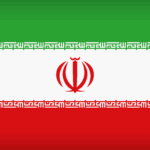
List of Prohibited, Permitted, and Conditional Goods for Import in 1404 – What Importers Need to Know!
Have you ever planned to import a product, only to be faced with a legal ban at the last minute? Or maybe you didn’t know that a specific license was required for a product? If you are active in the import and export sector, 1404 is full of key points for you. With new changes to the list of permitted, prohibited, and conditional items, it is now more necessary than ever to be familiar with the current laws.
In this article, we will take a close and up-to-date look at the list of prohibited, permitted, and conditional goods for import in 1404. So if you want to avoid costly mistakes, stay with us until the end of this article.
What items are prohibited for import in 1404?
Based on official government directives and approvals, the list of prohibited goods for import in 1404 has been revised compared to previous years. The reasons for the prohibition of these items vary; From cultural and security reasons to supporting domestic production.
Some of the prohibited imported items include:
Luxury consumer goods: such as cosmetics of certain brands, luxury watches, and clothing brands that have similar domestic production.
Expensive cars: cars over 2500 cc, luxury electric cars, and cars with special features are still prohibited from being imported.
Cultural materials that are contrary to Islamic values: including some books, films, and certain video games.
Contaminated or unauthorized agricultural or food products: due to health risks or lack of approval by the Food and Drug Administration.
It is interesting to know that even some goods are prohibited for environmental reasons; for example, the import of disposable plastic containers or certain chemicals.
Goods allowed to be imported in 1404 with facilitated conditions
In addition to prohibited goods, fortunately, there is a list of items that can be imported with simpler conditions. These goods generally do not require a special license and can only be imported into the country by complying with customs regulations.
These goods include the following:
Basic livestock and agricultural products: such as corn, soybeans, simple fertilizers.
Spare parts for industrial machinery: provided that they are not subject to sanctions.
General medical supplies and simple hygiene equipment: such as gloves, masks, and non-sensitive care equipment.
Processed foods with authorized brands: which have the approval of the Standards and Health Organization.
Of course, importers should note that registering an order and complying with legal regulations are still mandatory, even if the goods are on the list of permitted goods.
Conditional goods for import: definition, conditions and method of obtaining a license
Conditional goods are neither completely free nor completely prohibited. This group is goods that require a license from specific institutions for import.
The licensing bodies are:
Ministry of Health, Medical Treatment and Education: for medicines, medical equipment, supplements, special food items.
Ministry of Agricultural Jihad: for the import of seeds, plants, special agricultural products and livestock inputs.
Ministry of Industry, Mines and Trade: for goods subject to specific production or industrial regulations.
Examples of conditional goods:
Import of food supplements is only possible with a permit from the Food and Drug Administration.
Import of foreign tea or rice must be carried out with a permit from the Ministry of Jihad and within the framework of the established quota.
Some security equipment, such as CCTV cameras or listening devices, is subject to a permit from the Ministry of Intelligence.
To obtain these permits, it is necessary to register an order in the Comprehensive Trade System and follow the online processes.
The latest changes in the list of imported goods for 1404 (1404 AH)
With the beginning of 1404 AH, the Trade Development Organization of Iran and Customs have issued circulars that include some updates to the list of imported goods.
A summary of these changes:
Increasing the ban on importing similar domestically produced goods: including some household appliances such as televisions, refrigerators, and washing machines.
Changes in the import of economy cars: According to the new decree, economy cars worth less than $10,000 can be imported under certain conditions.
Increasing strictness for the import of certain supplements and medicines: in order to control the quality and safety of consumers.
Facilitating the import of some industrial raw materials: to support domestic production and prevent stagnation in the manufacturing sector.
The “Product Identification” system has also been updated to make the process of identifying and registering orders simpler and more transparent for economic actors.
Why are some goods banned from import?
A very important question that many importers and even consumers ask is: “Why does the government ban certain goods?”
The main reasons for these bans are:
Supporting domestic production: If a product is produced domestically and has the capacity to supply the market, its import is prohibited so that domestic producers are not harmed.
Security issues: Some goods, such as certain spy or communication equipment, may pose security threats.
Environmental concerns: The import of goods that pose environmental risks or are difficult to recycle is prohibited.
Cultural and value concerns: The import of items that conflict with Iran’s Islamic and cultural values is completely prohibited.
Ultimately, these bans are part of the country’s macroeconomic, cultural, and security policies, and importers must adapt to them.
How do we determine whether our goods are in the permitted or conditional category?
One of the major challenges for importers is to know which category the goods they intend to import fall into: permitted, conditional, or prohibited? Fortunately, there are several official tools and systems for this.



